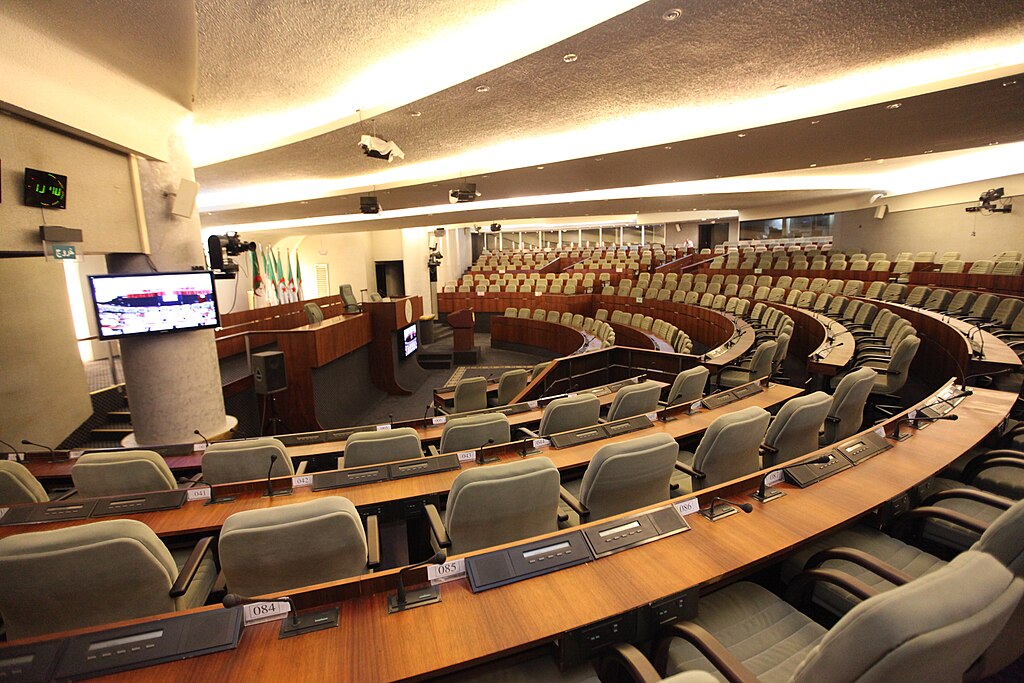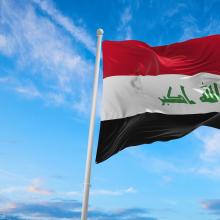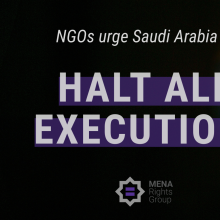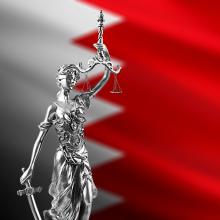June 15, 2023
Lire la page en français
Algeria swears in new Parliament - 10 August 2012 © Magharebia, licensed under CC BY 2.0.
Update: On August 29, 2023, the Organic Law on Information came into force following its publication in the Official Gazette. There are no substantive changes from the draft law, hence we maintain the concerns raised in our analysis.
Read the full report, available in French only.
ARTICLE 19 and MENA Rights Group are alarmed over the Algerian parliament’s recent adoption of a draft organic law on information, which would have a detrimental impact on freedom of expression in the country. In addition, Algerian authorities are currently working on the adoption of two additional bills relating to audio-visual activities and the print and electronic press.
In an analysis transmitted to the Special Rapporteur on Freedom of Opinion and Expression on June 7, 2023, ARTICLE 19 and MENA Rights Group found that several provisions contained in the three pieces of legislation run contrary to international human rights standards. These include the International Covenant on Civil and Political Rights (ICCPR) and the African Charter on Human and Peoples’ Rights (ACHPR), both of which Algeria has ratified. The draft law also fails to remedy the shortcomings of the restrictive 2012 Information Code it intends to replace.
Most notably, we regret that the new media law still contains vaguely formulated reference standards governing the activities of journalists. Article 3 of the new organic law on information, following the provisions of the 2012 Information Code, provides that media activities must respect “the Muslim religion, Islam in the national context, and other religions, national identity, national norms, the moral and cultural values of the nation, national sovereignty, national unity and territorial unity.” The broad and imprecise nature of these reference standards will continue to disproportionately affect the peaceful exercise of freedom of expression.
In a similar vein, the bill compels journalists to respect a number of additional norms that lack legal clarity and are incompatible with international standards of freedom of expression. For instance, journalists must refrain from publishing or disseminating “false or malicious news”.
In the 2017 Joint declaration on freedom of expression and 'fake news', disinformation and propaganda, the former Special Rapporteur on Freedom of Opinion and Expression noted: “General prohibitions on the dissemination of information based on vague and ambiguous notions, including ‘fake news’ or ‘non-objective information’, are incompatible with international standards relating to restrictions on freedom of expression (...), and should be abolished”.
Another area of concern is the ban on Algerians with dual nationality owning or being shareholders in a media outlet in Algeria. Despite receiving criticism from and a proposed amendment by a member of the People’s National Assembly, this provision remains intact in the new media law. Furthermore, journalists in Algeria working for a foreign-owned media outlet are required to obtain prior accreditation.
Under Article 12 of the draft organic law “it is forbidden to receive direct or indirect funding from a foreign entity” and offenders shall be subject to a “fine of between one million and two million dinars”. We fear that this provision will complement existing sanctions in the Penal Code that have been used against dissenting voices.
For example, on December 29, 2022, Algerian journalist Ihsane El Kadi, director of Radio M and Maghreb émergent, was arrested for having received funds from foreign sources, allegedly in contravention of Article 95 of the Penal Code, which punishes people “receiving funding” that could be a threat to “national security or the normal functioning of institutions, or national unity, or the territorial integrity or the fundamental interests of Algeria or security or public order”.
With regard to journalistic sources, although the text of the draft law acknowledges that “professional secrecy constitutes a right for journalists in accordance with the laws and regulations in force”, it also requires journalists to disclose their sources to the courts upon request. Without adequate safeguards in place, this provision will undermine the principle of protecting journalists’ sources.
Equally concerning, Article 32 of the draft organic law on information provides that a journalist has the right to access his or her sources except where the subject matter involves “secrecy relating to national defence”, national security and/or national sovereignty, “the secrecy of investigations, ‘the legitimate interests of companies’ and ‘respect for privacy as well as other rights”.
ARTICLE 19 and MENA Rights Group warn that such restrictions may impede access to information that is of public interest, which in turn may discourage people working in the media or related fields from engaging with these issues. This provision is likely to further undermine the ability of journalists to provide accurate and reliable information.
Finally, the draft legislation also establishes regulatory and self-regulatory authorities over the media without ensuring their independence. In fact, the draft organic law on information proposes the creation of a High Council of Ethics and Professional Conduct for the journalism profession, with half of its members being directly appointed by the President of the Republic. This raises concerns about the council's ability to operate independently.
The draft bills on the print and electronic press provide for the creation of a regulatory authority for print and electronic media, while the draft bill on audio-visual activities amends the status of the audio-visual regulatory authority created in 2014. The bills provides that all the members of both regulatory authorities will be appointed by the President of the Republic, which raises serious concerns about their independence.
We welcome the fact that none of these texts impose custodial sentences for press offences. However, the new text must not be read in isolation from the Penal Code, which contains several provisions punishing non-violent speech offences with imprisonment. Two journalists are currently imprisoned in Algeria, Ihsane El Kadi and Mustapha Bendjama, for exercising their freedom of expression.
We recommend that the provisions of the media laws explicitly supersede the provisions of the Penal Code regarding non-violent speech offences, whether they are committed by journalists or other individuals. This will ensure that the media laws take precedence and provide a legal framework that upholds freedom of expression and protects journalists from undue criminalisation or imprisonment.
Algeria ranks 136th out of 180 in Reporters Without Borders’ 2023 World Press Freedom Index. Since 2019, at least 11 journalists and media workers have been prosecuted and detained, and the authorities have increased the blocking of news sites and publications critical of the government.






